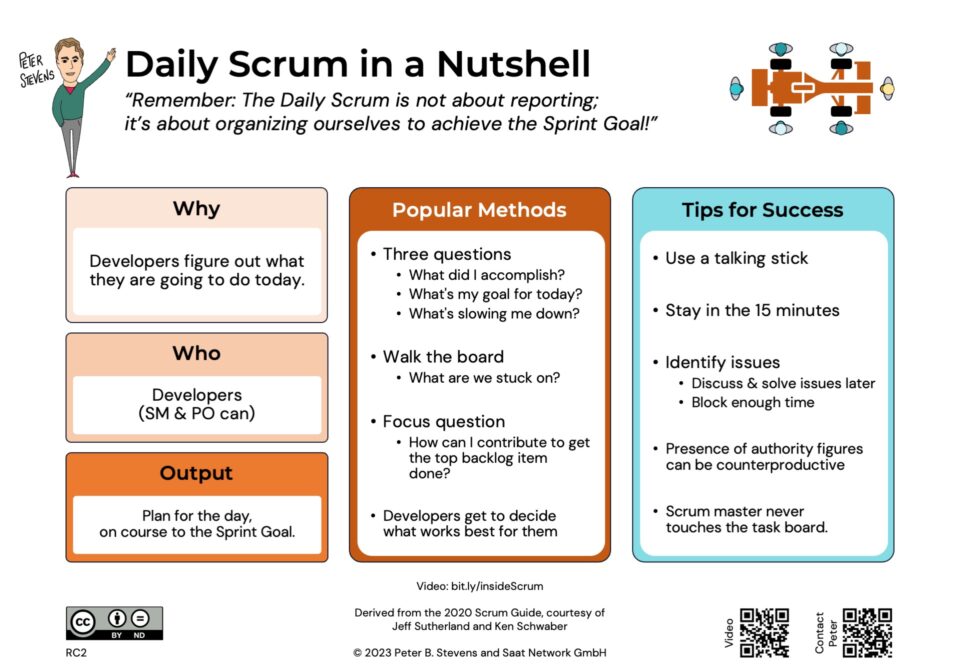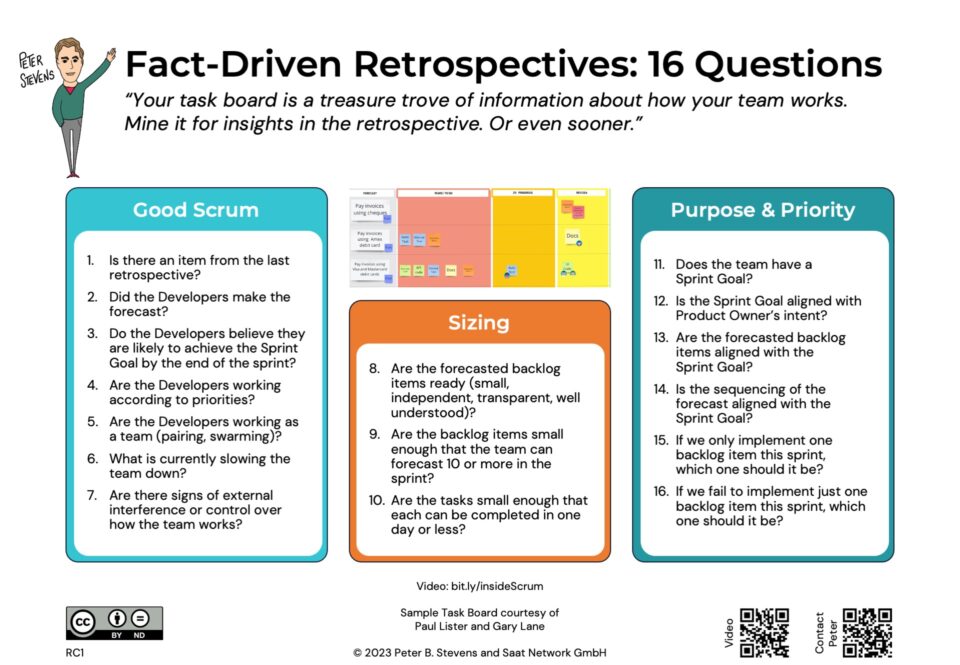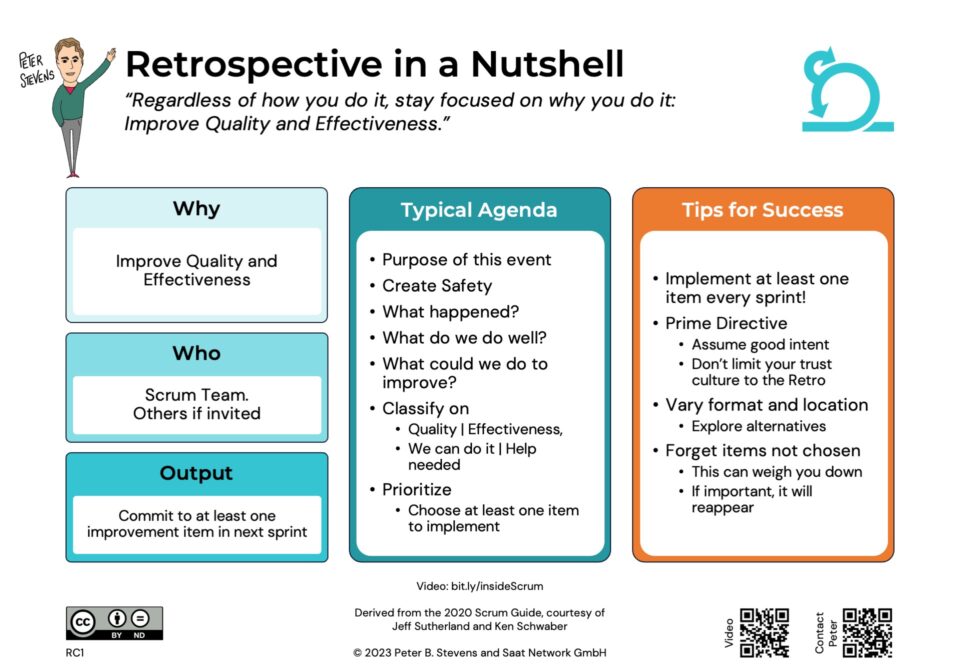Explaining Story Points to Management
13-02-2008More on Selling Story Points to Management
16-02-2008When I present Scrum to customers, I often hear, “yes but we do RUP, that’s iterative, so it’s Agile, right?”
I spent some time looking at “Project Management with Rational Unified Process” by Gerhard Vergsteen (in original German) and “Projektmanager”, published by the German Society for Project Management. Two thoughts:
- The RUP Book got to chapter 3 before it even mentioned people. Then it spent the rest of the book telling “Workers” how to do their jobs in very minute detail. (And yes, even within the iterations, the waterfall lives.)
- I looked for the word “Responsibility” (Verwantwortung) in the index of both books. I didn’t find it.
I just gave a presentation on Scrum to a group of potential customers in the public sector, one of whom believed quite strongly that good people make good product managers, regardless of the methodology. He’s absolutely right on one point. People make projects succeed, not methodologies. And a bad project leader can screw up a project under any methodology.
But Scrum emphasizes people and their responsibilities & committments to each other. It doesn’t tell them what to do, but ensures procedurally that if everyone plays by the rules, all the necessary information will become available as quickly as possible so people can do their jobs optimally.
I am now a much better project leader thanks to Scrum. Scrum helped me discover my capabilities.
So I believe methodology and frameworks do make a difference and that Scrum brings out the best in the people on the project.
Update: May 28:
Some futher thoughts on the differences between Scrum and RUP, check out Rational Scrum. I am starting to think that the combination of Lean, Scrum and XP offers the top to bottom framework analagous to RUP, but in an agile context.





2 Comments
This is what I tell anyone who asks about the best methodology: "The best one is the one that works for your company in your situation". Anyone who says otherwise is trying to sell you something.
e.g. In an fast paced company (say a .com) where time of delivery determines if you live or die your points for Scrum are well taken. However not "everyone plays by the rules" so in say pharma, nuclear, defense, there needs to be a more risk based and controlled approach. In those cases RUP has advantages over Scrum.
Hi Anon,
I agree with you that not all projects are suitable for Scrum. I also agree that belief in and passion for what you're doing are essential for success.
So if you deeply believe that RUP is the right method for you and your situation, I will be the first to tell you that you should do RUP.
Having said that, I now have customers in 2 of the 3 fields that you mentioned. Early returns are quite positive. So am I wondering, what are the advantages? And why can't you integrate them into Scrum?
Cheers,
Peter